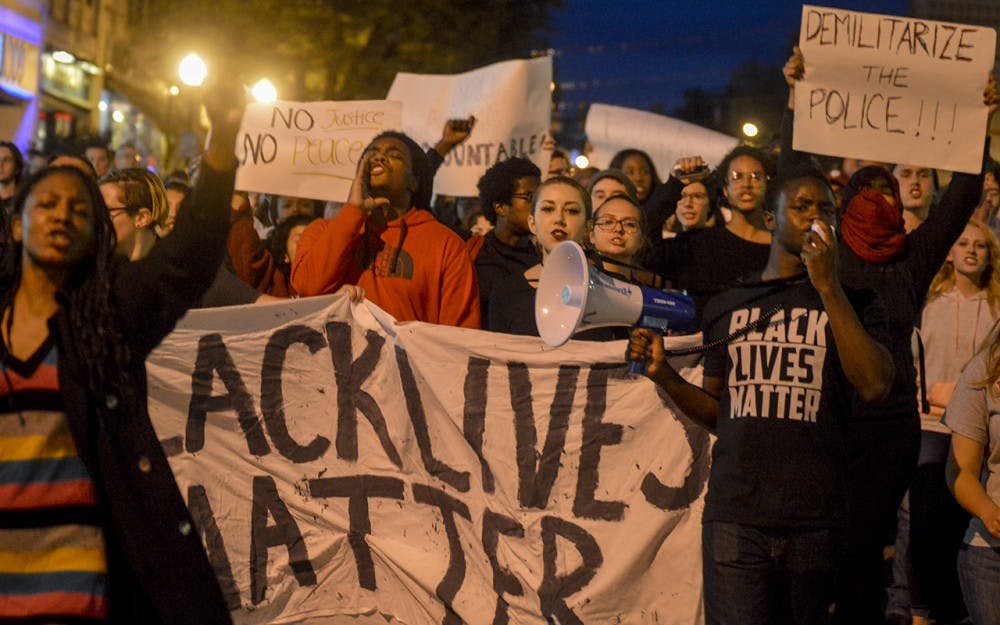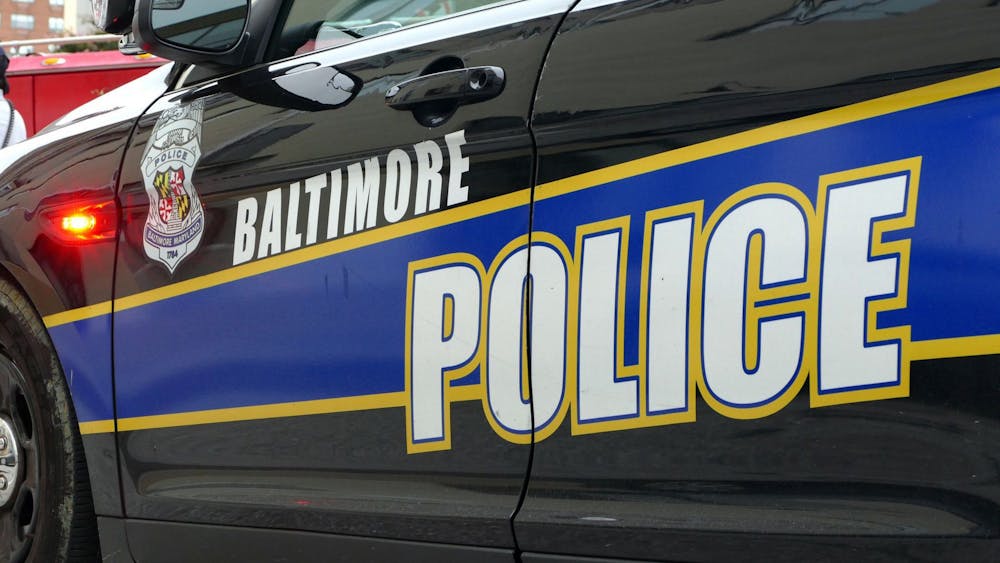A panel composed of police officers and professors gathered in the Neal-Marshall Black Culture Center on Friday evening to discuss the relationship between police and the black community.
Haben Gebreslassie, vice president of the Gamma Eta chapter of Alpha Phi Alpha Fraternity, organized the event and began the panel by outlining ground rules for the evening, which included respecting one another and the complex issues at hand.
The emcee, IU senior Chesley Swann, delivered the first of a round of questions collected from an online survey to which students submitted throughout the week.
“Is Blue Lives Matter a necessary movement?” Swann asked. “And does it honestly draw any parallel to Black Lives Matter?”
IU Police Department Capt. Andy Stephenson said he is aware of Blue Lives Matter, White Lives Matter and All Lives Matter, but those terms essentially result from misunderstandings.
“I think all of these might have been an offshoot of a way to counter the Black Lives Matter movement,” Stephenson said. “I think people misconstrue Black Lives Matter to mean that those involved are saying only black lives matter, that no other lives matter, which is not the case.”
[Hundreds gather for BLM demonstration | IDS]
IU McKinney School of Law Professor Carlton Waterhouse took the next question, which regarded the history of police brutality and its relation to the present.
He said it is important to first try to understand America as a nation was founded on the principle that all people have rights to life, liberty and the pursuit of happiness, though only white men who owned property initially received those rights in practice.
“The state was intended to be for their benefit,” he said. “Other people were intended to be present to serve the needs of those white founders.”
[IUPD encourages peaceful protests | IDS]
Consequently, the earliest police officers targeted races of people deemed undesirable or considered threats to those in power. The officers kept African slaves on plantations, Waterhouse said, and they controlled Italian and Irish laborers in the growing cities.
“I’m bringing up all of this old stuff, because when you are living in a racialized state, you have to understand who the ideal citizen is,” he said. “You have to have movements that say Black Lives Matter, because otherwise, society does not reflect that as a reality.”
Waterhouse said the question the nation grapples with today does not concern whether or not an individual is racist, but rather how the society values people.
Swann asked how departments are training officers to combat such intrinsic societal values today.
“I think what we lack is explaining our culture as police officers to the community,” Indiana State Police Capt. Ruben Marté said.
He said he shows a film about the Freedom Riders to officers in training, and many have never before understood the historical context of their profession.
Stephenson said historical implicit bias training, paired with cultural awareness training, is starting to improve views and tactics. Despite the developments, though, some civilians and officers continue to fear one another.
That fear often comes up in situations as seemingly innocuous as a traffic stop, prompting a student to submit a question regarding roadside rights and responsibilities of officers and civilians.
Maurer School of Law professor Jeannine Bell said a driver must provide license and registration and must get out of the vehicle if the officer asks, no matter the offense.
IU senior and IUPD officer Keon Brown said every situation and officer is different.
“The only advice I would give is to just do what the officer says,” Brown said. “That’s probably the best way to avoid situations, and you can always dispute and make complaints after.”
Marté agreed that the side of the road is not the place for resisting.
“If there’s only one person living, there’s only one story getting out,” Marté said. “And the bottom line is this: you want to leave that traffic stop alive.”
A previous version of this article misidentified Carlton Waterhouse as a professor at the Maurer School of Law. The IDS regrets this error.






